Best 50 Movies Of The Decade So Far (#40 – #31)
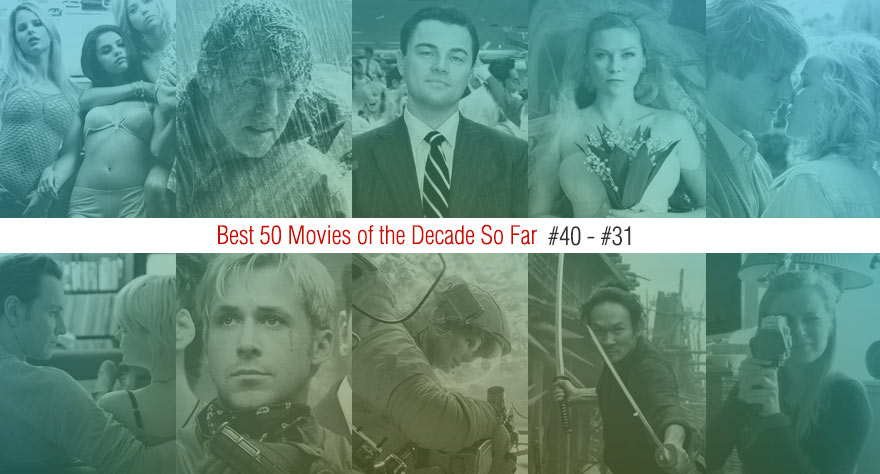
After a lot of deliberating and discussing, we compiled this list of the Best 50 Movies that came out between 2010 and 2014. These are films we love, cherish, and suspect we will remember years and years from now. A lot has changed with film in the last 5 years, but the quality of the creative output only seems to keep getting better. Here’s to an amazing first half of the decade, and let’s hope the next five years lead to even bigger and better things.
Every day this week we will release ten films from our list, here is #40 through #31.
Best 50 Movies Of The Decade So Far
(#40 – #31)
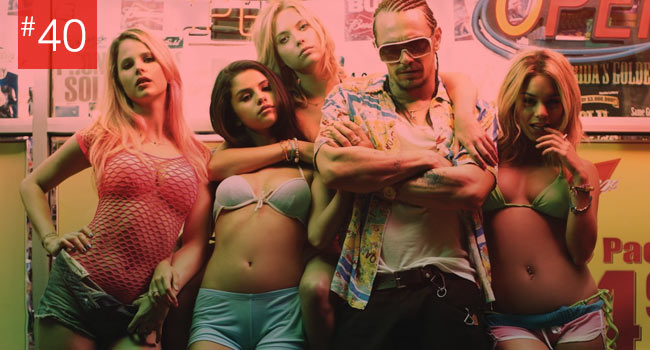
Spring Breakers
Harmony Korine’s Spring Breakers is a diabolically delicious assault of bleached-out colors, alcohol, and synthesized sounds. All of which makes for a ferociously dazzling watch. From its mesmerizing opening depicting hundreds of young adults participating in grossly outrageous spring break shenanigans,—while sounds of robotic vomiting (courtesy of dub-master Skrillex) discharge on the audio track—up until the final scene, a gun fight eruption (lit up with bright neon tints) at a South Floridian Oceanside manor, the film grabs hold tightly. So seldom are films released that are this audacious. The film follows four young college girls who will stop at nothing (and I mean nothing) to have the greatest spring break ever. The film is essentially a terrifying, unrelenting montage; we see the girls go from parties to robberies to gunfights and back again. James Franco owns every inch of the film while he’s on screen as cornrow-flowin’, gold teeth-showin’ drug lord/rapper Alien. He is on fire here in a career best performance that should’ve gotten him an Oscar nomination. While stars Franco, Vanessa Hudgens, Selena Gomez and Rachel Greene are all excellent, the real star here is Harmony Korine, who has found a way to sell his weird, subverted look at humanity to the masses. Spring Breakers is an instant classic. [Blake]
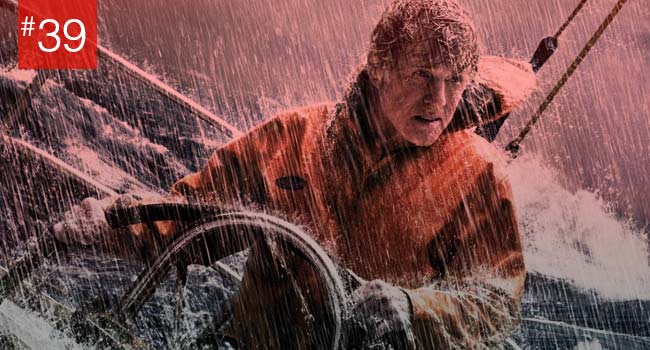
All is Lost
A spellbinding exercise in visual storytelling, J.C. Chandor’s All is Lost is a tale of survival at sea and a fascinating study in male ego. Robert Redford stars as the nearly-wordless film’s unnamed subject, a man alone on a boat in the middle of the ocean whose will to survive is immovable. Despite the elements threatening to rip his precious vessel to shreds, he fights tooth and nail to keep the boat (and his spirits) afloat. While his dogged refusal to perish at first looks a lot like bravery, as it becomes clear his efforts are futile, heroism turns into stubbornness. At what point does giving up become a virtuous act? Redford has enough experience to keep his performance reality-based, maintaining a deadpan expression in moments where lesser actors would look to the heavens with a face that screams, “Why me!?” He’s simply behaving, letting his body do the talking rather than relying on high drama and facial flourishes. The film’s presentation is as stunning and engrossing as Gravity’s, a similar film that came out in 2013 as well. (I prefer All is Lost’s grit and realism to Gravity’s sometimes maudlin tendencies.) If you haven’t seen this one, find it and make sure you watch it on a big screen with a muscly sound system. [Bernard]
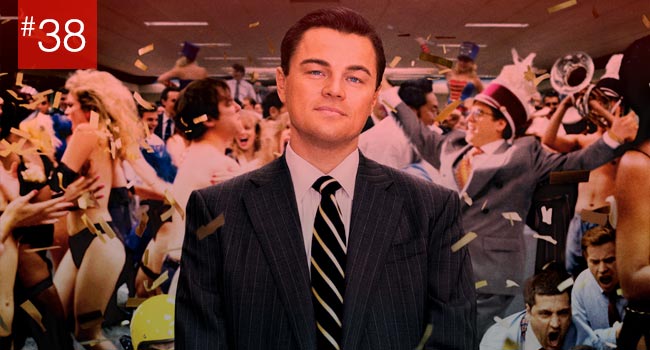
The Wolf of Wall Street
Even in his 70’s, Martin Scorsese proves he’s intrinsically capable of capturing the enticing aspects of capitalism within the context of a searing indictment of greedy stock brokers. The Wolf of Wall Street may feel like an ode to opulence and apathy for those Wall Street bankers who allegedly cheered for the film’s characters in their most despicable moments, but for those in the audience with an understanding for the real world implications of Wolf, Jordan Belfort & Co. look like the band that played while the Titanic sank. Worse, they feel like the band’s onlookers. Among the most telling anecdotes from the film is one in which Belfort reminisces in voiceover about a ménage à trois he and Donnie Azoff (Jonah Hill) shared with the future wife of their co-worker. Belfort recounts with glee the lurid aspects of their tryst only to end the anecdote by mentioning that his co-worker later slit his wrists in a bathtub, before Belfort sighs and moves on to his next deplorable indulgence. That juxtaposition allows Scorsese’s film to serve as a criticism without coming across as preaching. The Wolf of Wall Street creates an engaging experience without neglecting substance. [Zach]

Melancholia
Leave it to Lars Von Trier to make one of the best films ever made about depression. The titular planet at the center of Melancholia, which winds up annihilating Earth by smashing into it, isn’t exactly the most subtle allegory, but Von Trier makes it work. He understands how depression can be such a large, destructive, all-encompassing force, and by equating it with the end of existence he finds the perfect way to evoke the true power of despondency. With jaw-dropping visuals and sound (it’s hard to get tired of hearing Wagner), as well as two astounding performances from Kirsten Dunst and Charlotte Gainsbourg, Lars Von Trier wound up making one of his best works with Melancholia. [CJ]

Midnight in Paris
Not reading anything about Woody Allen’s fantastical and joyous comedy Midnight in Paris was the best choice I could have made. Admittedly, I didn’t do this on purpose; it was more by happenstance than anything. I say I didn’t know anything about the film, but actually knew that it stared Owen Wilson and it took place in Paris. If you’ve never been to Paris (like myself) the opening 5 minutes is a basically a montage of everything you’ve always dreamed about experiencing in the sprawling French capital. The food. The music. The people. The museums. If you have been to Paris, it’ll have you pining to go back. The film’s plot centers on Wilson (never better) as he peruses Paris and discovers a magical world that awakens at night, one that makes his wildest dreams come true. Allen’s film is a nostalgic fever dream aimed at those who wish to have lived and experienced an era unbeknownst to them. The Wilson character fantasizes about the wild nights in which Picasso, Hemingway and Fitzgerald drank alcohol and told old, grand stories about love lost. Allen has essentially made a film a year since the late ’60s; this is easily in his top five. Romantics and old souls will revel in Allen’s glorious world. [Blake]
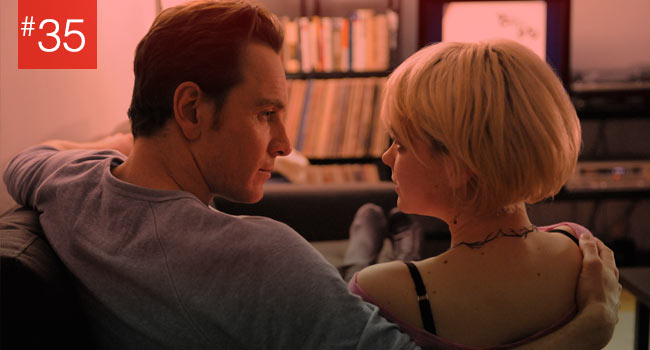
Shame
Before Steve McQueen earned a Best Picture Oscar for 12 Years A Slave (which also made our list) and became a household name, he made a grueling, yet exquisite film about sex-addiction called Shame. Despite all the acclamation for Michael Fassbender’s flattering full-frontal scenes, the film itself offers little else to cheer for. McQueen presents a depressing look into the life of Brandon (Fassbender), a man who’s constantly in search of his next orgasm, though he never finds any kind of meaningful pleasure in them. He’s completely lost his ability to connect with people on an emotional level. The only emotions he experiences are dissatisfaction and shame (hence the title). As you’d probably expect, watching a man slip deeper and deeper into sexual addiction is emotionally exhausting, but Shame remains a profoundly powerful experience thanks to McQueen’s fearless filmmaking and brilliant vision. Shame is not an easy watch, but the discomfort is absolutely worth it. [Dustin]
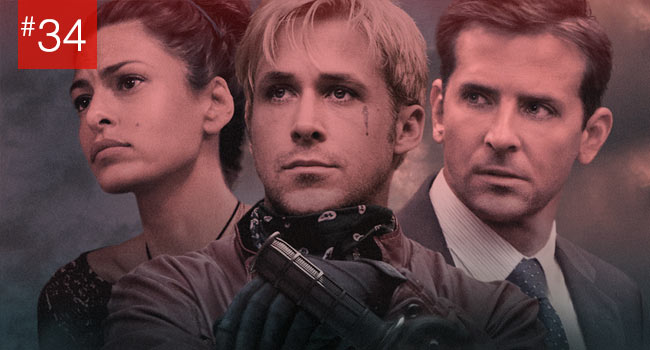
The Place Beyond the Pines
A perfect example of the idea that a story isn’t nearly as important as how it’s told, The Place Beyond the Pines strives in its every moment to defy categorisation. Its three acts are entirely unlike one another in genre, and yet are harmoniously strung together in their aesthetic and thematic content. What begins as an honest insight into the lives of the working class ends as an introspective on the notion of how our lives eventually come to affect those of our children, in ways we don’t expect. What truly stands out about this film, however, is how bold every choice is, from the opening shot to a 15 year jump in the plot. Directed by Derek Cianfrance, who also co-wrote the script, the film allows its characters to develop as authentic people by providing foundations upon which the actors can build highly convincing emotions. Ryan Gosling, Bradley Cooper and Eva Mendes are all unforgettable in their own ways, and yet the film handles melodrama with the lightest touch, keeping emphasis firmly on the humanity behind its events. [Pavi]
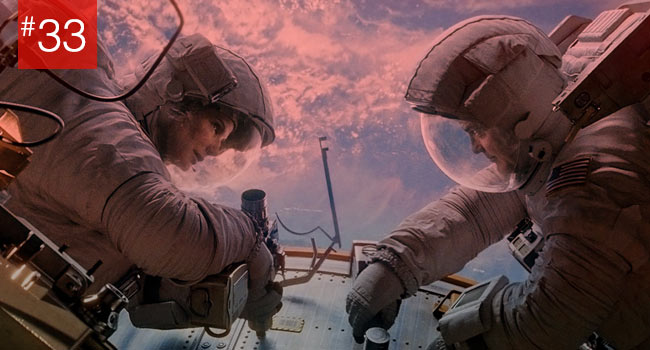
Gravity
Gravity does two things extraordinarily well. In fact, it does one of those things so well it’s worth overlooking the film’s flaws. The out-of-this-world photography, aided by a partnership of special effects and star Sandra Bullock’s physicality, is the reason the film belongs on this list and will be remembered for a long, long time. There isn’t a film that looks like Gravity, and there honestly may never be another. Looks aside, the film’s ability to create intense emotional stakes is also remarkable. If our connection with astronaut Ryan Stone (Bullock) throughout her crazy journey was missing, it wouldn’t matter how amazing everything looked. But we do connect, thanks to Bullock, who gives a remarkable (I’d even argue underrated) performance, as well as the success of its excellent (though much-derided) script. Screenwriters Alfonso and Jonás Cuarón trade in big sci-fi mythology for a streamlined, simple approach, and it works. Not all of the dialogue plays well, but there is a beating heart at the center of Gravity that makes it more than just a pretty face. Additionally, the film’s achievements in 3D filmmaking are groundbreaking. Gravity wonderfully melds forward-thinking technological concepts in filmmaking with an old-fashioned, emotionally charged story—an uncommon balance pulled off extremely well. [Aaron]
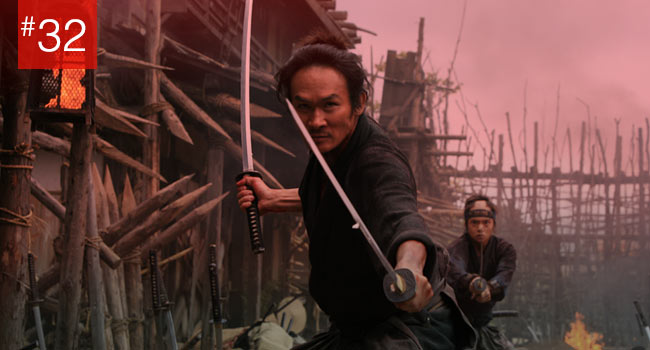
13 Assassins
13 Assassins, despite being a remake of a different film, could easily be summed up as Seven Samurai for the 21st century, a leaner, meaner take on Akira Kurosawa’s classic. The film’s first hour briskly sets up the situation: a samurai gathers 12 other assassins to take out the Shogun’s tyrannical half-brother. Once all the pieces get put into place, 13 Assassins spends its second hour unleashing one of the great action sequences of this century, an epic battle between an army of hundreds and the small group of samurai. Takashi Miike, one of the most prolific and versatile directors working today, directs 13 Assassins with a level of classicism and efficiency that’s a complete breath of fresh air compared to today’s action films. 13 Assassins is near-flawless genre filmmaking of the highest order. [CJ]
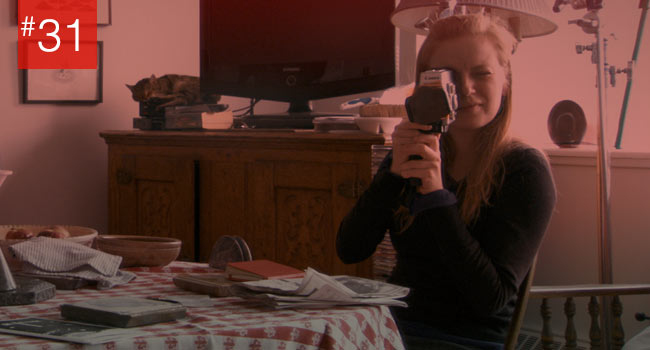
Stories We Tell
There is a common misconception that documentaries must be concerned with the truth, and with facts. Stories We Tell is a documentary film that seems to be uncovering truth at its surface, but in reality is examining something much more human. Director Sarah Polley’s goal may at first seem to be uncovering the truth about her mother, but as the film progresses, we can see that it is specifically her family’s memories of her mother that she is actually interested in. This ties together the essence of family itself, highlighting the way in which her family continues to remain supportive of each other and place their relationships above all else. Taking an unusual but effective approach to her discoveries, Polley focuses not on creating an accurate narrative of her mother’s life, but on displaying the complexities inherently involved in storytelling. It is through this portrayal that a film about her family becomes much more universal, allowing us to partake in the shared memories even if only through our own nostalgia. After all, the past is only as significant as the story it tells. [Pavi]
See the rest of our Best Movies Of The Decade lists!
View Other Lists of this Feature:
Best 50 Movies Of The Decade So Far (#50 – #41)
Best 50 Movies Of The Decade So Far (#30 – #21)
Best 50 Movies Of The Decade So Far (#20 – #11)
Best 50 Movies Of The Decade So Far (#10 – #1)
